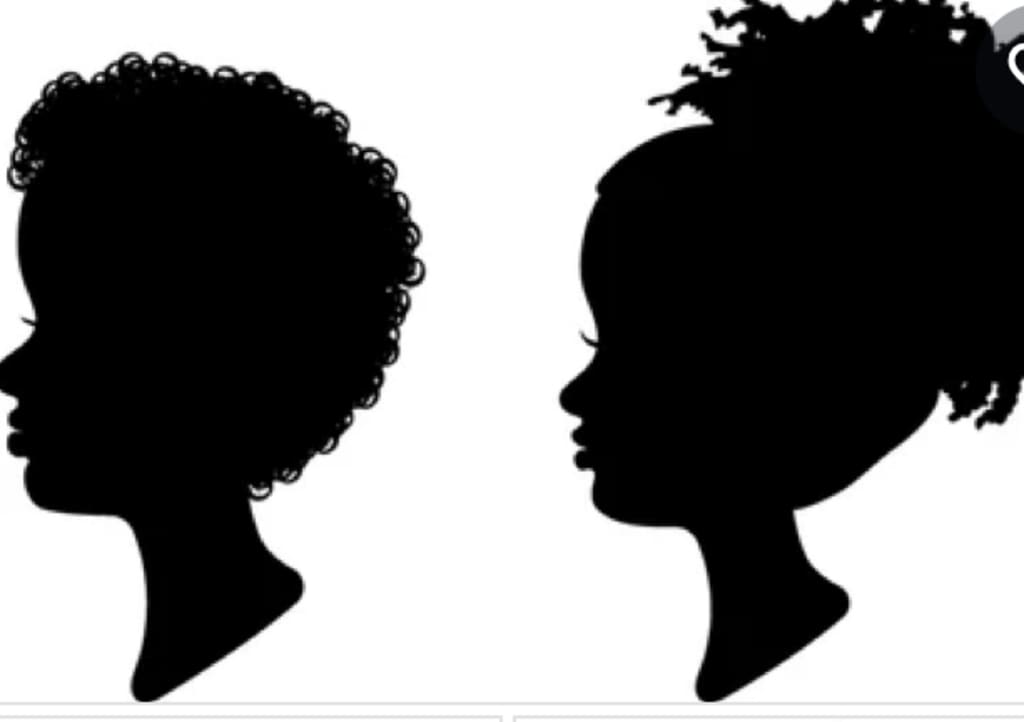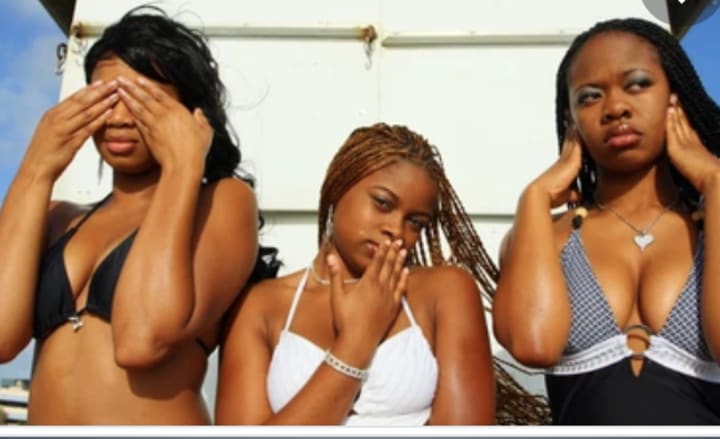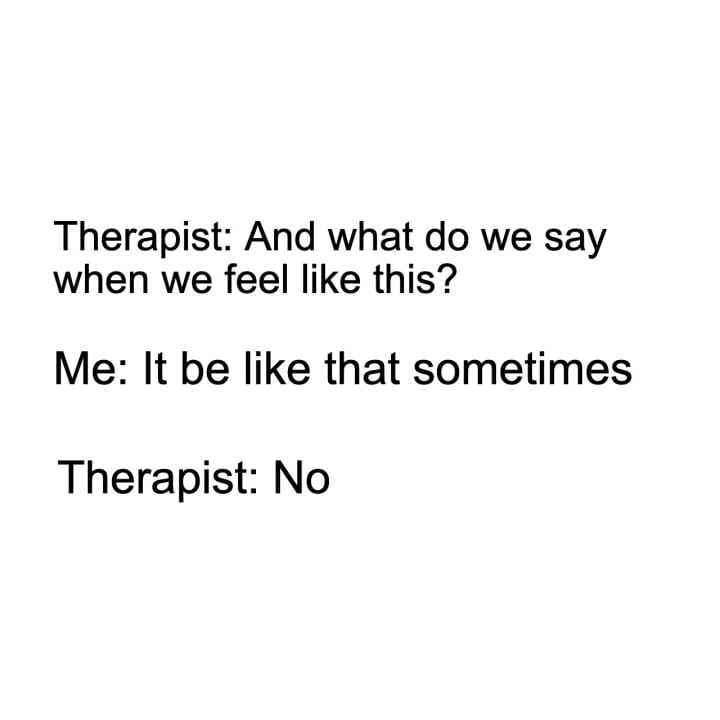The Struggle of Growing Up With Black Parents
A Glance in the Mirror

Disclaimer: Stephy Says 💋 this is a TRIGGER WARNING ⚠️ & while it is not my personal experience, it is a common one in our culture. I may cause a lot of backlash from the black community but…
Can we talk about how much black parents traumatize their children? Or amount of unhealed trauma black adults carry with them into adulthood from having to endure childhood?
Surviving Black Parents, LifeTime…I’m ready to tell our story.
The black culture has dealt with oppression ALL of our lives. Police brutality, systemic racism, financial strain led by discrimination during the hiring process, unequal education experiences, & inadequate medical care. Most of the things we were taught & did growing up stemmed from slavery as methods to escape or at least attempt with cope. (Being home before the street lights come on, beatings, etc—idk if that’s true but it makes sense 🤷🏽♀️). Let’s not even talk about the fact that most black homes are already broken at the foundation. Without a solid foundation, a house cannot stand.
From passing through generations, African American parents used their authority & instilled a form of oppression into their children. IMO once black parents were given authority, the took on a “master mentality” or “master mindset”. This is the why I believe they feel as if disagreeing is disrespect. It’s also why I feel we were always told “because I said so,” as a response to our questions or inquisitive nature as children, simply because they didn’t like to feel as if their authority was being questioned. They never explained their answers & their method of teaching us logic or reasoning was by asking us the rhetorical question that required an answer: “If so and so jumped off a bridge would you jump off too?”
Here was the beginning stages of our imagination & creative thinking processes being snuffed out. Questions were not permissible & nothing was explained, therefore we had to learn the lessons of life on our own by trial & error. Failures then being met with comments spat in your face like, “Couldn’t tell you nothing because you thought you knew everything,” without them realizing that they never attempted to TELL us anything in the beginning which is how we ended up venturing out on our own.
The constant need to be able to express ourselves or ask questions compared to the actually ability to do so is largely disproportioned. A few issues we just dared not speak of: sexual orientation, exploration of sexuality, religion, & mental health just to name a few. Noses were turned up at feminine boys & masculine girls. If you were interested in exploring sex you were considered “fast” or “hot” even though they taught us these things in a “family life” or sex ed class. Providing birth control meant you were “allowing” sex rather than providing protection.

Depression or any other mental illness was forbidden because— “what you got to be depressed about? You don’t pay no bills. You got somewhere to lay your head, & somebody taking care of you!” Right, because not having those things are the ONLY reason to feel depressed. After that, depression & mental illness was deemed a “spirit” & it was of the devil. So, prayer & being drug to church were the only forms of treatment. The lack of understanding of mental illness within the black community or merely the unwillingness to learn about it created mentally ill black adults. The lack of effective listening or the sheer desire to understand doomed us.
Aside from that, it showed black children that we could NEVER talk to our parents about how we felt. If things were wrong, we would never say because “don’t tell nobody my business” or “what happens in this house, stays in this house” was heavily enforced. Unless of course, a black mama was on the phone. In this case, she told your business to everybody, but NEVER hers.
Black parents didn’t realize that by them cutting our access to communicating with them, they cut our comfort with communication as a whole. We were robbed of one of the most valuable & essential tools of adult life.
This skill deficit is why we struggle with expressing how we truly feel. We are taught early that it doesn’t matter how we feel because have no valid “reason” to feel the way we do. It also stunted our growth & hindered our ability to be successful communicators both on the speaking & listening end.
Effective communication is a life necessity. Not allowing us to communicate & openly disclosing our confidential information led us to growing up with the inability to trust anyone.
The end result for black children = “it is what it is” or “it be like that sometimes.” This becomes a blanketed statement for our feelings about life altogether. We don’t bother to explain anything: our feelings, thoughts, ideas, or aspirations.

Everything could be wrong but when we are asked, it’s still always NOTHING. Our emotions have been intertwined into these two words because of what we grew accustomed to. What do we feel? everything and nothing all at the same time. I guess it’s one the things that “strengthened” us as a black culture. Maybe, this is why black women are seen as “strong” & black men viewed as emotionless. We weren’t allowed to feel. They would hurt us & then reply “”Stop crying before I give you something to cry about!”
In the black culture, more often than not, love is equated to “taking care of you.” Most times this means the necessities of life: shelter, food, & clothing—you know, parenting responsibilities. Asking for anything more than the necessities warranted the response, “Money don’t grow on trees” or “you think I’m made outta money.” Occasionally we did get a few things we wanted ; even though, we were “old enough for your wants not to hurt you.” In contrast, I won’t dismiss that fact that there are moments of hugs & kisses &However, hugging, kissing, & cradling a little boy is considered making him “soft.” There are strict instructions to “put him down” because “he’s a boy.” Nurturing him will “baby” him, even when he’s a baby.
Black parents instill into little boys that they aren’t supposed to cry which leads to them not reaching their full or maximum potential as men, fathers, or significant others. When they cry, they are quickly told to “suck it up” because “boys don’t cry. Crying is for lil’ girls.”

The end result of a black emotionless boy is a black emotionally traumatized man—emotionally insensitive men or bitter women begging for attention & affection in any way they see as acceptable (flashing money, nudity, etc). These lead to false claims, women only want money & men only want sex. What both parties want is to be accepted & loved. The problem is that due to our rearing, the idea of love is skewed.
Accepting responsibility & accountability are other deficits in black parenting. For one reason or another, black parents never believed they were wrong. When they discovered otherwise, there was no action to right their wrong. There was simply an excuse.
They don’t apologize or acknowledge wrongdoings which leads to black adults struggling to admit fault, accepting what is considered to be “blame” or apologize. They can do no wrong. Pride & the desire to be right is bigger than the truth.
The end result of this becomes black adults that will mop the floor of the ocean before they say “I’m wrong” or “I’m sorry.” The pride inherited from black parents combined with the ego that grew along with their personality creates a stubborn or opinionated individual that’s often viewed as toxic or bad energy.
I’m a nutshell, the black community are seen as a plethora of things: hostile, violent, confrontational, thugs, gangsters, defiant, aggressive, unfriendly, bitter….
We are viewed as everything except what we REALLY are…
SURVIVORS ✊🏽

Happy self-awareness
About the Creator
Stephy Ellsworth
Certified Blogger | Master Life Coach | Lover of words, writing, reading, & English |Published Authoress|
“Everyone has a story, I just decided to write mine.” -Steph 💋✍🏽
#stephysays💋#astoldbySteph #stephysaysshow #accordingtostephy






Comments
There are no comments for this story
Be the first to respond and start the conversation.